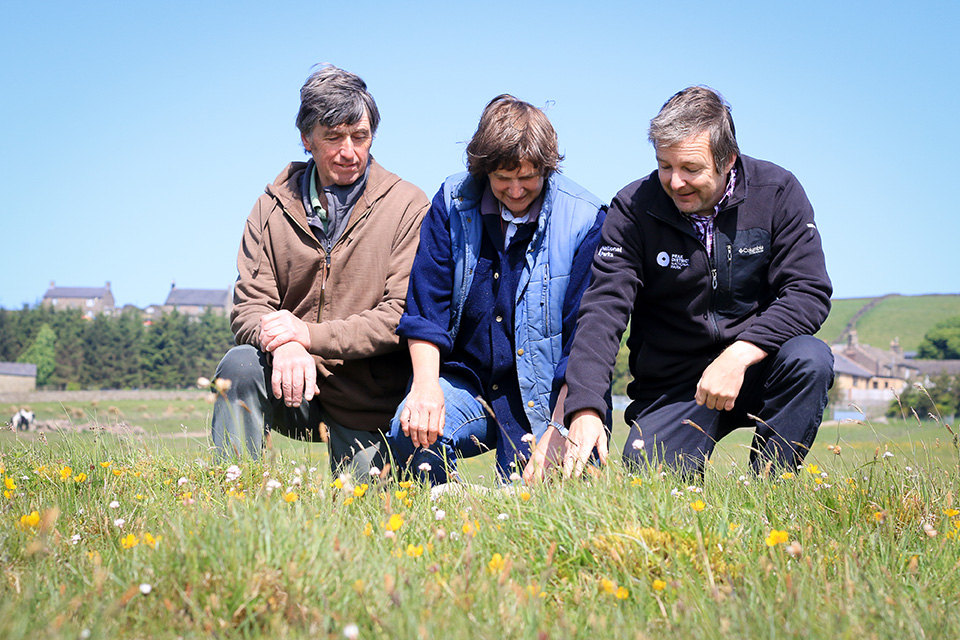Support and advice to enable collaboration
There is only so much that individuals, acting in isolation, can do on their own. By working together, farmers and land managers can work collectively to deliver greater benefits for nature and farm income at scale.
Collaboration between different land owners across the Peak District is essential for the objectives of the Lawton Principles (opens new window) to be realised. If land owners act, not as individual units for nature recovery, but as nodes in a much larger network, more benefits can be delivered at a much greater scale.
Nature has no regard for human imposed divisions and boundaries across the land; collaboration between landowners can help create a more seamless network for wildlife to thrive in. By working together, farmers and land managers can work more cohesively together to collectively deliver greater benefits for nature at scale.
# For nature
- Collaboration can help restore and create habitats that link up existing sites and provide stepping stones for wildlife to move through the landscape.
- Farmers and land managers can learn from each other, and better implement measures to help nature.
- Collaborative training means best practice and learnings are shared with many people.
- Buffers for wildlife between fields can be extended if they are implemented on both sides of a land boundary.
# What else can collaboration deliver?
- A landscape perspective.
- Collaborating can link farmers and land managers socially, helping with feelings of isolation.
- Collaboration means less pressure on individuals to deliver.
- Sharing resources, including equipment or training programs, can reduce costs.
- Increased opportunities for income generation which may not be readily available to individual landholdings.
- The benefits of ecosystem services from one area can overflow onto surrounding lands if they are well connected for nature.
- Support and collaboration between farmers, land managers and owners can strengthen communities, helping people work together more closely. Strong and supportive communities can also help to tackle the loneliness and mental health problems that affect so many in rural and agricultural environments (opens new window).
# In practice
- Collaboration generally needs a facilitator. This could be an Adviser, or someone from the farming community.
- Collaboration could be with neighbours, with those with similar farming systems, or aiming to achieve shared objectives.
- Co-ops, machinery rings or just sharing machinery can all help facilitate collaboration.
- Share best practice, what has worked and what hasn’t.
- Funding should be clearly signposted and easily accessible.
- Group training, workshops and events, to reduce costs, build relationships and deliver nature recovery at scale.
- Peer to peer learning can spread knowledge around in a bidirectional manner, in a language farmers and land managers relate to and understand.
